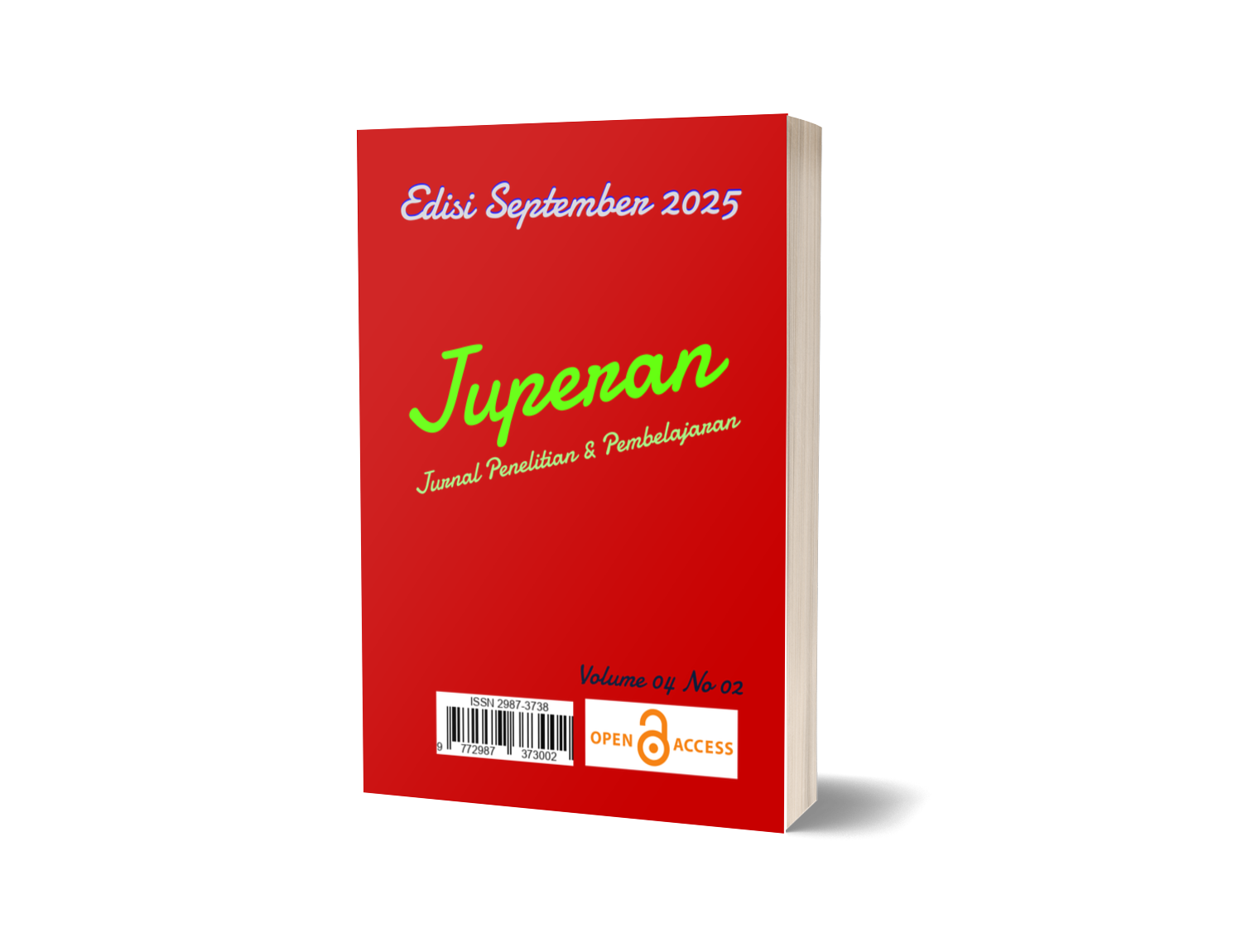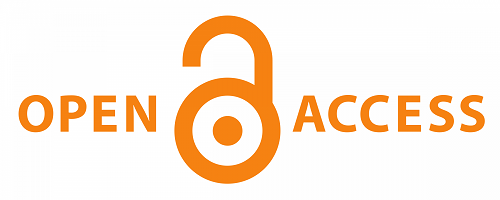Digital English: An Investigation Of Gen Z's Online Language Practices Through Social Media And Their Implications For English Language Education
DOI:
https://doi.org/10.70294/juperan.v4i02.1132Kata Kunci:
Digital Learning, Social Media, English LearningAbstrak
This study investigates the online language practices of Generation Z on social media and explores their implications for English language education. By analyzing how Gen Z uses digital English including slang, abbreviations, and code-switching. This research reveals patterns in their communication that differ from traditional language use. The study employs a mixed-methods approach, combining content analysis of social media interactions with surveys among Gen Z users. The findings suggest that digital English reflects both linguistic creativity and the influence of global connectivity, which challenges conventional English teaching methods. The research emphasizes the need for educators to integrate digital literacy and contemporary language practices into English curricula to better engage Gen Z learners and enhance their communicative competence in the digital age.
Unduhan
Referensi
Anwas, E. Oos., Yuni Sugiarti , Syarif Hidayatullah and Anggraeni Dian Permatasari . 2020. Social Media Usage for Enhancing English Language Skill. Paper—Social Media Usage for Enhancing English Language Skill. https://doi.org/10.3991/ijim.v14i07.11552.
Conny, Nudia Yultisa, Rakhmat Wahyudin Sagala and Tri Indah Rezeki. 2024. Linguistic Shift Among Gen Z in Instagram-Based Computer-Mediated Communication. Journal of English Education. p-ISSN 2301-7554, e-ISSN 2541-3643 Volume 12, Issue 3, October 2024. https://journal.uniku.ac.id/index.php/ERJEE959.
Elleström, Lars. 2018. “A medium-centered model of communication”. Semiotica, no. 224, pp. 269–293, 2018a.
García, O., & Wei, L. (2014). Translanguaging: Language, bilingualism and education. Palgrave Macmillan.
Hollister, Brooke, Praveen Nair, Sloan Hill-Lindsay and Leanne Chukoskie. 2022. Engagement in Online Learning: Student Attitudes and Behavior During COVID-19. Sec. Digital Learning Innovations. Volume 7 - 2022 | https://doi.org/10.3389/feduc.2022.851019.
Jebaselvi, C Alice Evangaline, K Mohanraj, A Thangamani and M Ramesh Kumar. 2023. The Impact of Social Media on the Evolution of Language and Communication Trends. Shanlax International Journal of English 12(1):41-44. DOI:10.34293/english.v12i1.6725.
Lankshear, Colin and Michele Knobel. 2006. New Literacies: Everyday Practices and Classroom Learning 2e. Edition: 2ndPublisher: Open University PressISBN: 970 0355 220 106
Lutfiana and Suwartono. 2020. Online EFL Teaching and Learning: Advanced Grammar Class and Washback Effect in Test. Technium Social Sciences Journal. Vol. 11, 23-35.
Lutfiana and Muljani. 2021. Students’ Perceptions to D’employee As English Learning Media Game In The Digital Era. Conference: Proceedings 10th International Conference on Teaching English as a Foreign Language “Sustaining Distance Leaning in the Digital Era”At: Universitas Muhammadiyah Purwokerto.
Mabrur, Iskhaki Andre Muhammad, Lutfiana and Suwartono. 2021. Junior high school students’ readiness to participate in e-learning and online EFL classes during the COVID-19 pandemic. International Social Science Journal. DOI: 10.1111/issj.12271.
Olaniyan, Oluwayomi Rosemary and Tolulope Abisodun Oluremi. 2024. Reconstructing Nigerianisms through Sarcasm and Irony in Selected Nigerian Slangs and Mannerisms. Article 04 Issue 01 VOL 5.
Pasa, Tirta Atma and Mahyuni. 2023. Language Variations: A New Trend of Language Use Among Teenagers in Social Media. ACCESS 2021, ASSEHR 686, pp. 176–183, 2023.
Rianto, Sefrianus and I Made Juliarta. 2024. The Impact of Social Media on Language Use Among Teenagers.Creative Commons Attribution-NonCommercial 4.0 International License. Volume 2, No. 2.
Renna, Dora and Francesca Santulli. 2023. Across Languages, Across Media: A Comparative Analysis Of Linguistic Variation in Literary Translation and Transmedial Adaptation Of A Chinese-American Fictional Character. Diacritica. Vol. 37, n.º 3, 2023, pp. 153–173. DOI: doi.org/10.21814/diacritica.5070.
Saul McLeod, PhD. 2024. Mixed Methods Research. DOI: 10.13140/RG.2.2.31329.93286.
Smith, K., & Hill, J. (2019). Defining the Nature of Blended Learning through Its Depiction in Current Research. Higher Education Research & Development, 38, 383-397.
https://doi.org/10.1080/07294360.2018.1517732.
Suhaimi and Aulia Rachmad Pidie Saputra. 2025. The Importance of English Writing Skills in Social Media Usage for Generation Z at Iain Kerinci. Indonesian Journal of Studies on Humanities, Social Sciences, and Education (IJHSED). Vol. 2 • No. 2 • 2025, pp. 29–49.
Suppiah, Joanna C Robson , Peter C Grayson , Cristina Ponte , Anthea Craven, Sara Khalid , Andrew Judge , Andrew Hutchings , Peter A Merkel , Raashid A Luqmani 5, Richard A Watts. 2022. 2022 American College of Rheumatology/European Alliance of Associations for Rheumatology Classification Criteria for Microscopic Polyangiitis. Arthritis & Rheumatology. Volume74, Issue3, Pages 400-406.
Maqbool, S., Ismail, S.A., & Maqbool, S. (2020). Language learning strategies for Gen Z ESL learners as digital natives. Universal Journal of Educational Research, 8 (8), 3439-3448. https://doi.org/10.13189/ujer.2020.080818.
Syaputra, Ary Rahmad, Sapta Sari , Anis Endang. 2024. The Use Of Slang Language Style n Social Media Instagram By GenZ (Generation Z). Social Sciences Journal. Volume 1 Issue 2, 2024 (147-152).
Telaumbanua, Yasminar Amaerita, Nicky Elvin Cristin Zendrato, Benedicta Trisanta Nazara, Eldin Curtiel Harefa and Afridayanti Harefa. 2024. Analyzing the Language Style of Generation Z Teenagers in Their Instagram Posts. JELITA: Journal of English Language Teaching and Literature. Volume 5, Number 2.
Thurlow, C., & Poff, M. (2013). Computer-mediated communication. In TheHandbook of Language and Media (pp. 290-308). John Wiley & Sons.
Tufail, Safa, Madya Asgher and Dr. Ihsan Ali. 2024. Deciphering the Digital Vernacular: A Study of Generation Z Slang on Social Media Platforms. Pakistan Languages and Humanities Review. Vol. 8, No. 2.
Waemusa, Zainee and Apinya Jongwattanapaiboon. 2023. Divergence of Everyday Practices and School Policy on Mobile Use: Challenges to Developing EFL Learners’ Digital Literacies. International Journal of Technology in Education 6(1):37-48. DOI:10.46328/ijte.294.
Yu, Shubin and Luming, Zhao. 2023. Emojifying chatbot interactions: An exploration of emoji utilization in human-chatbot communications. Telematics and Informatics. DO - 10.1016/j.tele.2023.102071.
Zayyanu, Zaki Muhammad 1 and Yakubu Yunusa. 2021. An Investigation into effects of social media language on Standard English usage: A case study of WhatsApp. International Journal of Multidisciplinary Research and Growth Evaluation. Volume 2; Issue 2; March-April 2021; Page No. 255-260










